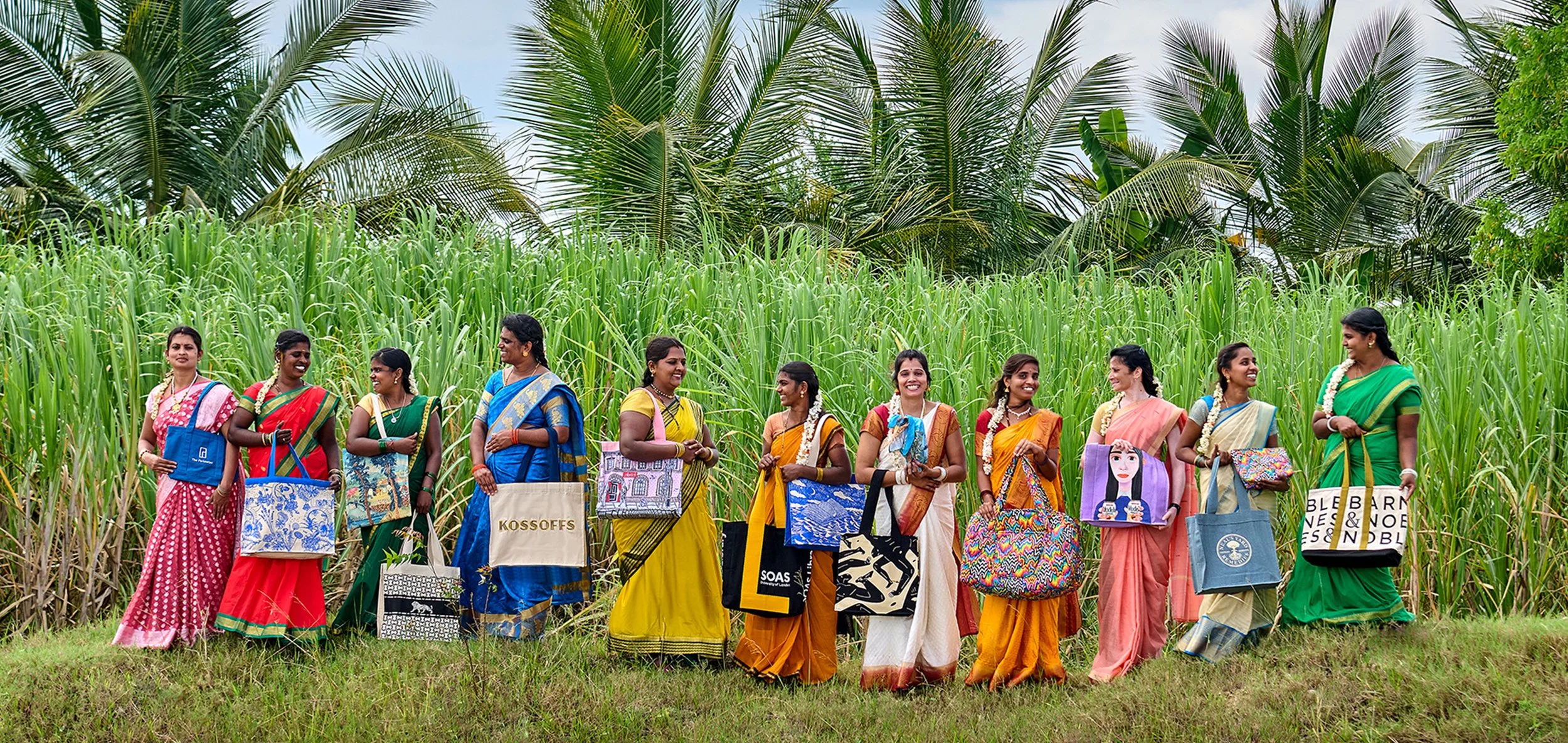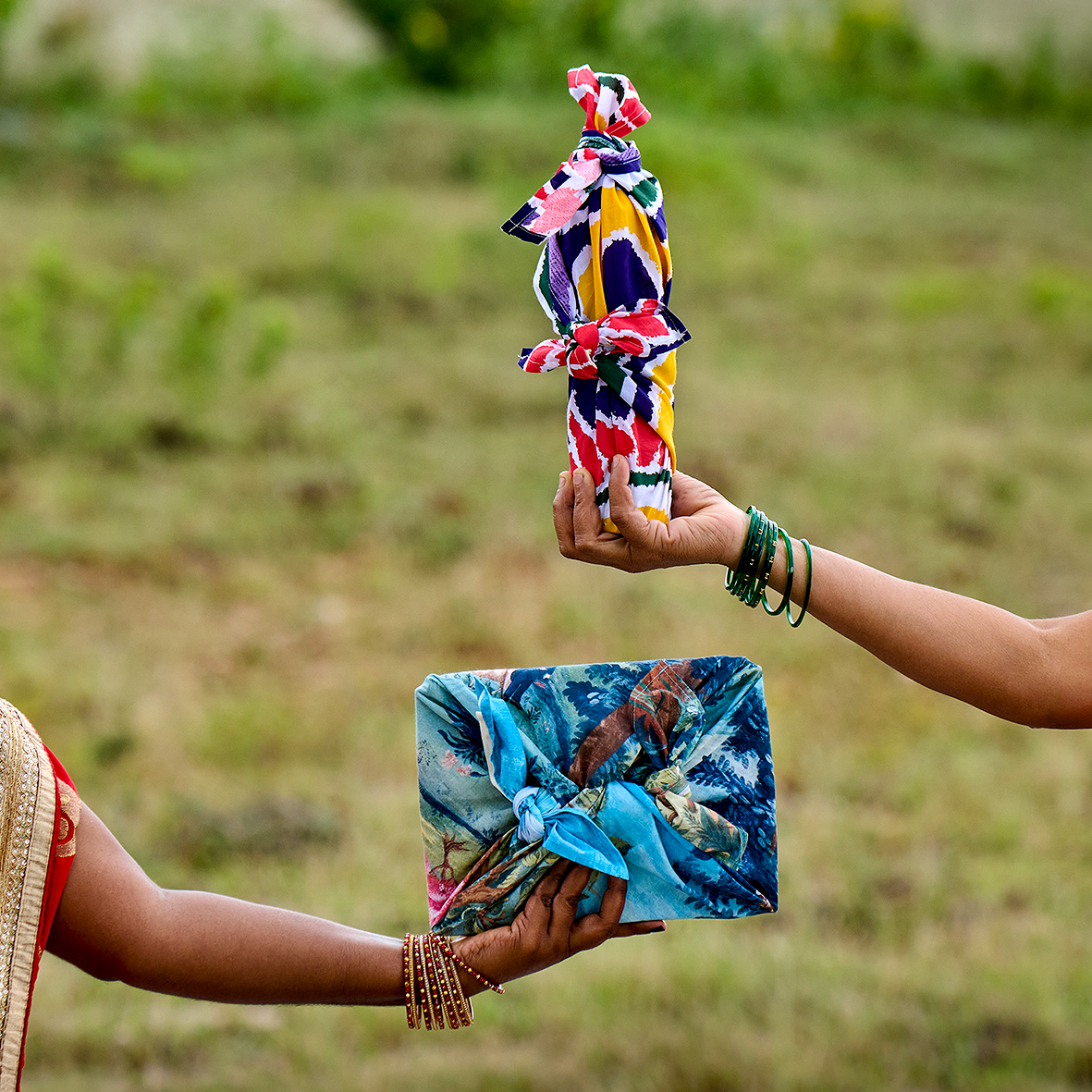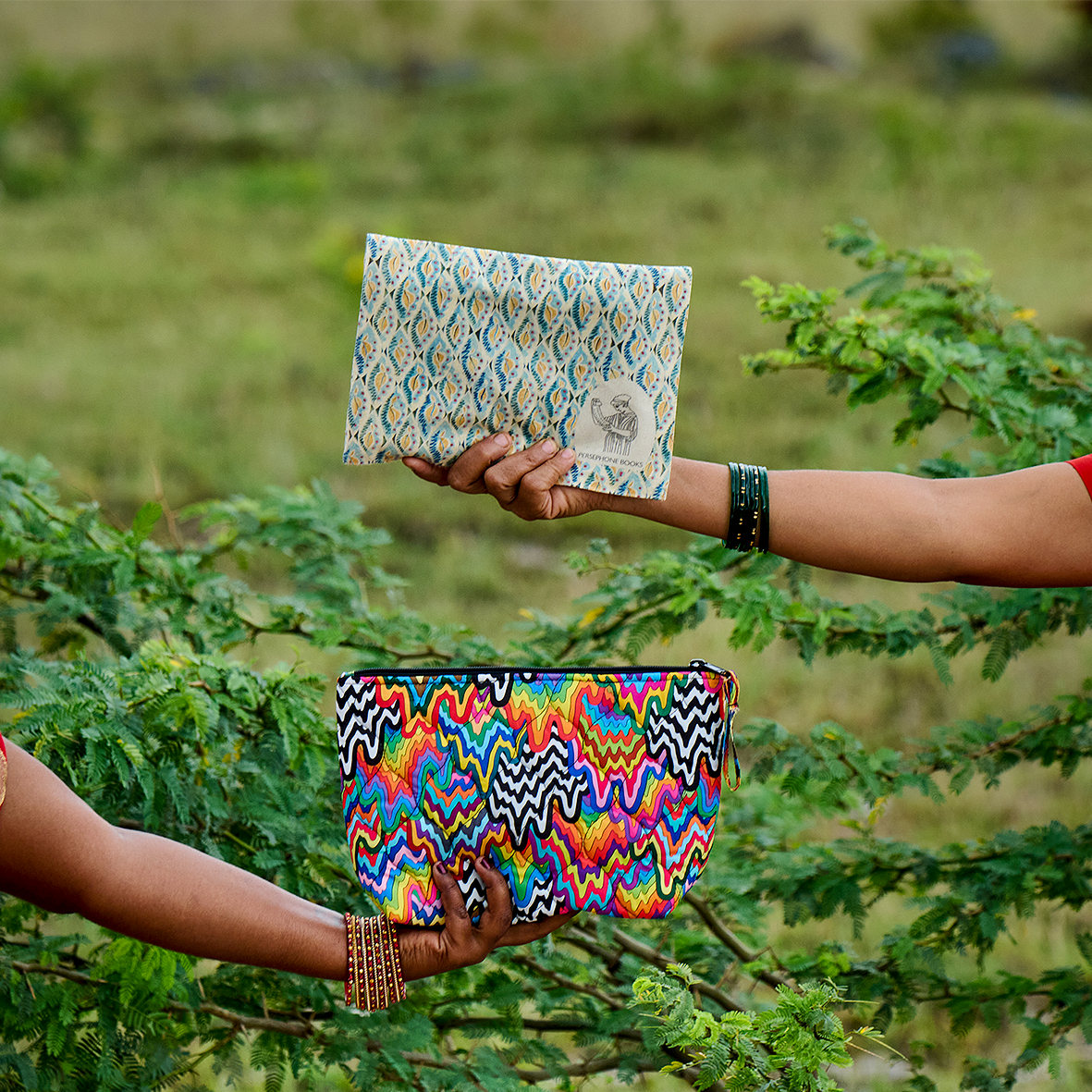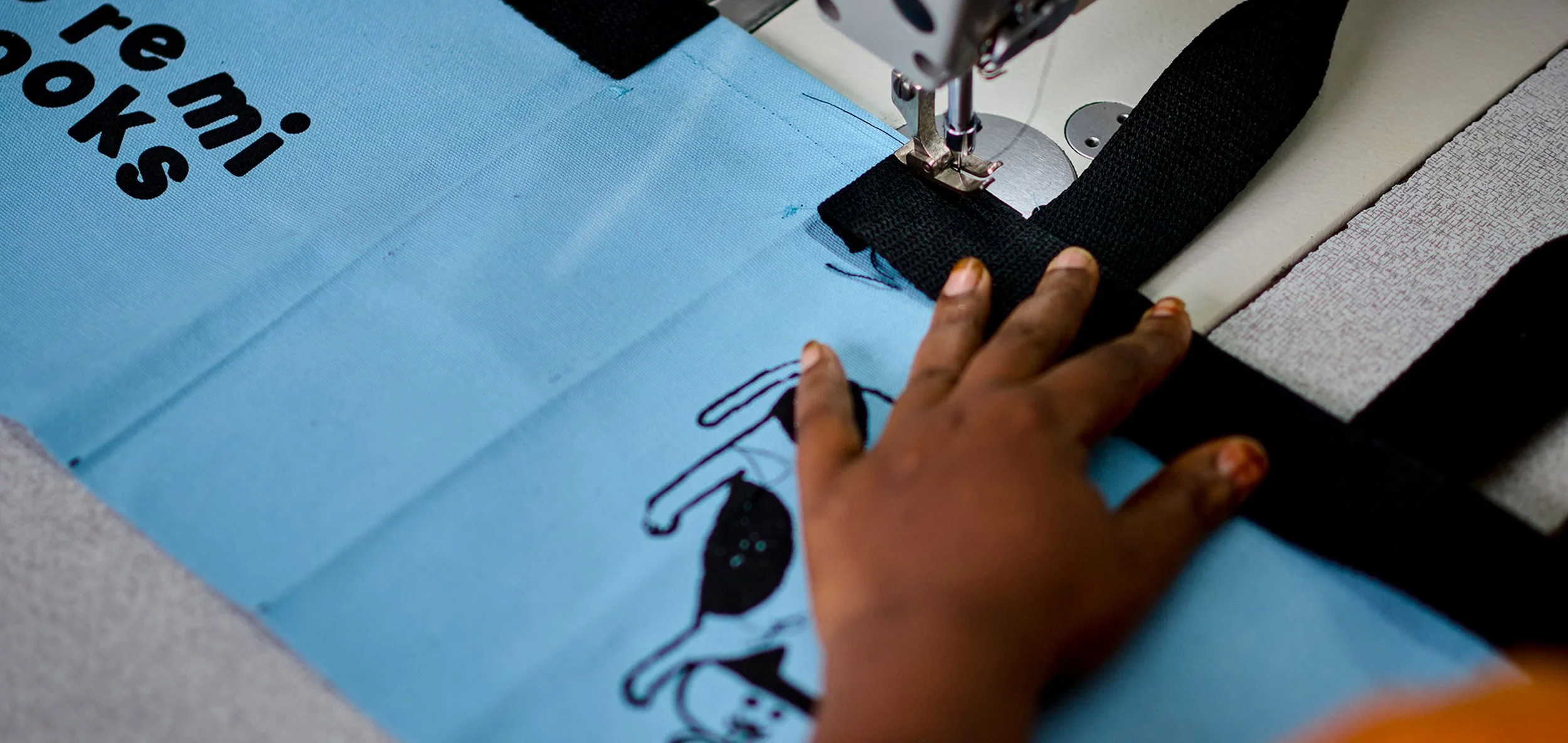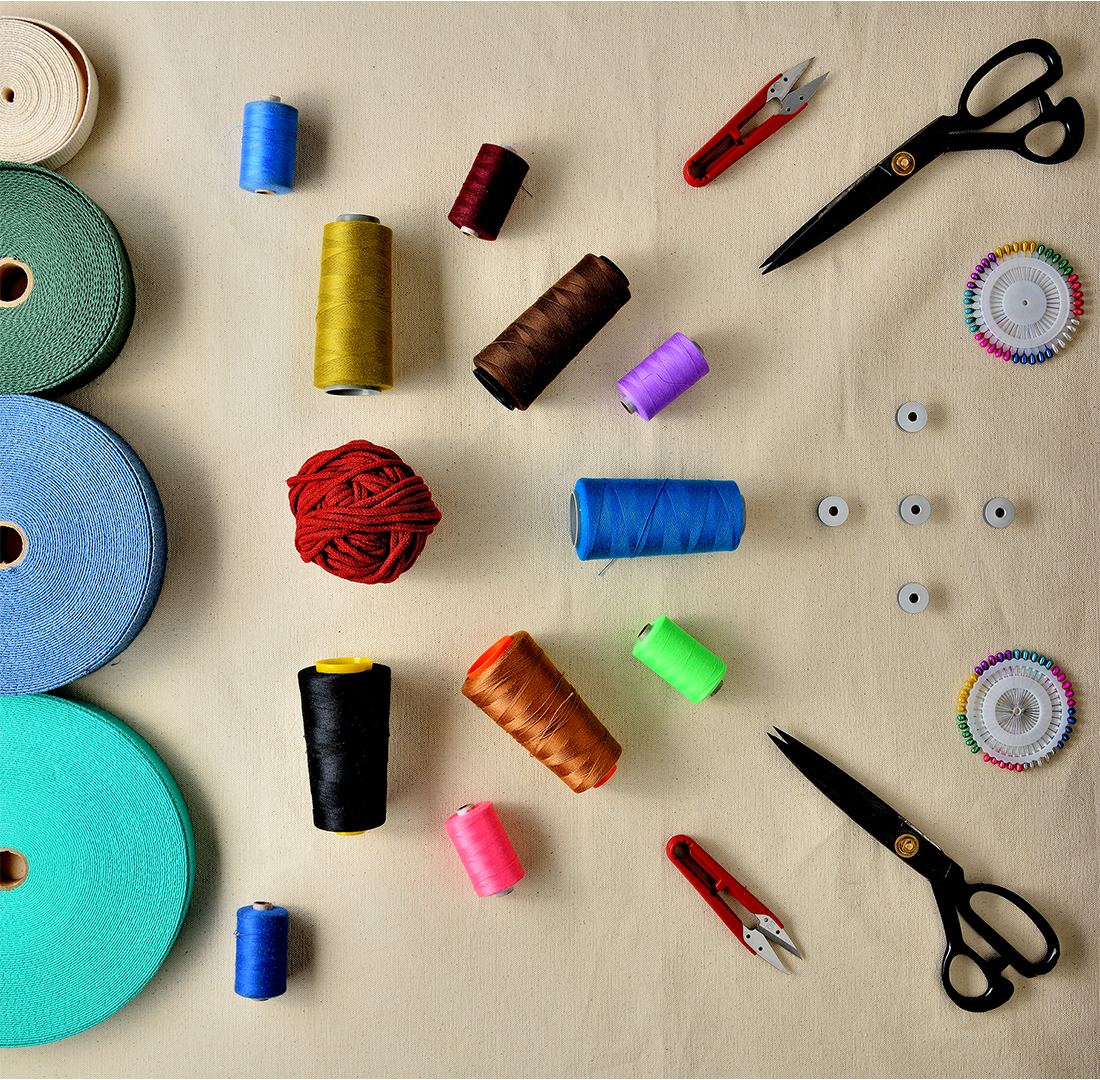product
we craft bespoke products with a circular approach, reimagining wasteful practices with care and quality in every stitch
how we reduce waste
Every stage of production is designed to conserve resources and reduce environmental impact. Digital sampling with CLO 3D allows patrons to refine designs before any fabric is cut, while meticulous collection and recycling of pre-production textile scraps ensures materials are reused rather than discarded. By carefully selecting GOTS-certified organic cotton, GRS-certified recycled cotton, and only biodegradable or recyclable components, we minimise chemical use, avoid non-biodegradable waste, and support a circular textile system. Together, these practices reflect our commitment to conserving nature and building a resilient future.
-
reduces fabric waste
By creating accurate digital prototypes, we minimise the need for physical samples, preventing unnecessary cutting of textiles.lowers energy and water use
Fewer physical samples mean less production, which reduces the energy, water, and chemicals typically consumed in fabric dyeing, printing, and finishing.decreases carbon footprint
Digital sampling reduces the need for shipping and transporting multiple sample garments, lowering greenhouse gas emissions associated with logistics.supports responsible design
By allowing patrons to trial and refine ideas digitally, we ensure only considered, purposeful production enters the physical world, aligning creativity with responsibility.
-
reduces landfill and incineration
By collecting and recycling every scrap of pre-production textile waste, we keep valuable materials out of landfill and prevent unnecessary incineration.conserves natural resources
Transforming waste into recycled fabric reduces the demand for virgin cotton and other raw materials, protecting land, water, and energy resources.minimises production waste
Careful pattern cutting and sewing techniques limit the amount of textile discarded during manufacturing, ensuring materials are used efficiently.supports a circular textile system
By reintroducing pre-production scraps into new fabrics, we extend the lifecycle of materials, contributing to a more regenerative production cycle.
-
reduces chemical impact
Using GOTS-certified organic cotton ensures fibres are grown without harmful pesticides or synthetic fertilisers, protecting soil, water, and ecosystems.minimises non-biodegradable waste
Avoiding plastic components, such as zips, and prioritising biodegradable or recyclable materials prevents microplastics and long-lasting waste from entering the environment.supports a circular system
Selecting materials that can be fully recycled or composted extends their lifecycle, promoting a more thoughtful approach to product design.
frequently asked question
-
Our lead time from confirmation of order to delivery is normally 60 – 90 days.
-
Our minimum order quantity is normally 1000 pieces depending on the item ordered. Give us a call to discuss.
-
Yes, we offer shipping from our Creation Unit in India to just about any location in the world.
-
From Seed to Shop, every person from our farmer all the way to our patron is considered with care. By collaborating with re-wrap, you are nurturing the life of each person involved in the journey of the bag - from the farmer to the patron.
-
We are proud to be CIC, or Community Interest Company. It is a social enterprise model, that means we operate for the benefit of the community rather than private profit.
-
As an impact-led business, re-wrap holds impact at the center of decision-making across every part of our organisation, guided by our three core pillars of product, people, and planet.
-
We always aim to go beyond certification requirements, but a full list of our accreditations can be found here.


